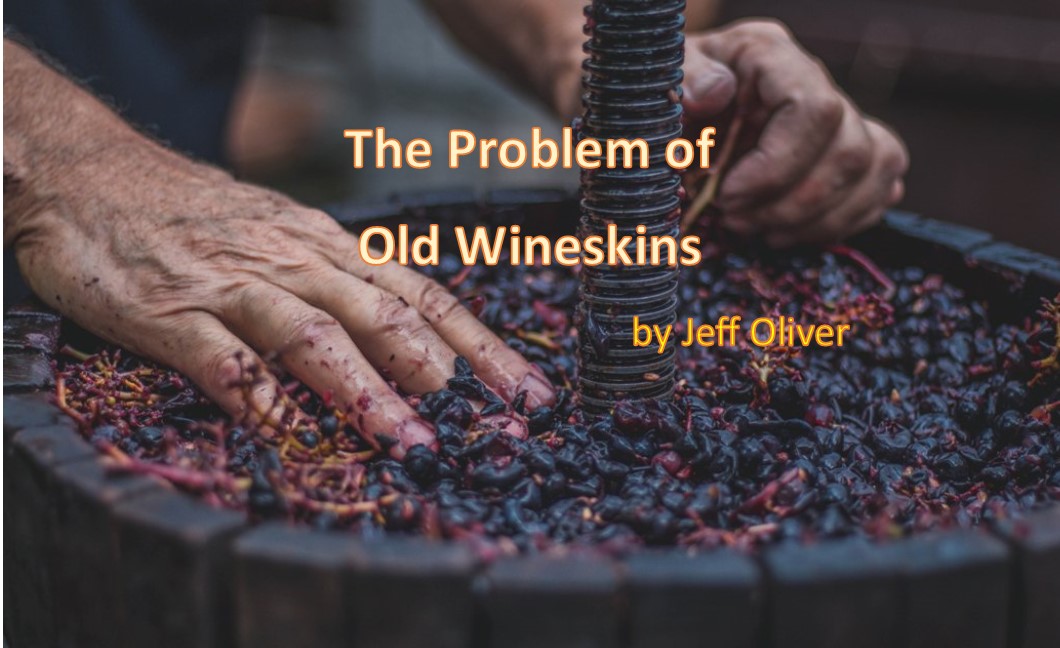The Problem of Old Wineskins
Jeff Oliver, author of the three-volume Pentecost to the Present: The Holy Spirit’s Enduring Work in the Church, brings a challenge to church leaders: desire and operate in the gifts of the Spirit.

The greatest problem facing the church today may not be a new one, but an old one. Jesus said, “No one pours new wine into old wineskins; otherwise the skins will burst and the wine will pour out and the skins will be destroyed. Instead they put new wine into new wineskins and both are preserved.”
Jesus was responding to a question asked by John’s disciples, “Why do we and the Pharisees fast and your disciples do not?” He was illustrating the difference between John’s ministry and that of his own. John came to call to repentance those who were steeped in the traditions of Judaism. Jesus, however, had not come to patch up the old system or to pour new wine into an old vessel. He came to begin anew. Neither the teachings nor the works of Jesus could be contained in an old rigid legalistic system. This would require something stronger, more tender and pliable. Jesus’s gospel was the very power of God, as were his works. John himself explained the difference between the two ministries when he said, “I baptize you with water for repentance. But after me will come one who is more powerful than I … He will baptize you with the Holy Spirit and with fire.”
New Wine for New Wineskins
The Western church has forsaken a supernatural God.
Yet this was only the first of many times the Holy Spirit would be poured out on Christ’s new wineskins—his church. In Acts 3, Peter said multiple “times of refreshing” would come from the presence of the Lord. This happened in Samaria (Acts 8:17) at Saul’s conversion (Acts 9:17) in Cornelius’s house (Acts 10:44) in Ephesus (Acts 19:6) Corinth (1 Cor. 2:4) Rome (Rom 12:6) Galatia (Gal 3:5) Thessalonica (1 Thess. 1:5) among a group of unnamed Hebrews (Heb. 2:4) and in countless other places and regions in the Roman Empire and beyond. On and on through history numerous times of refreshing occurred—far too many to mention here (see Pentecost to the Present: The Holy Spirit’s Enduring Work in the Church). With each occurrence, the church preserved the work of the Spirit and the work of the Spirit preserved the church.
Category: Spirit, Spring 2018


